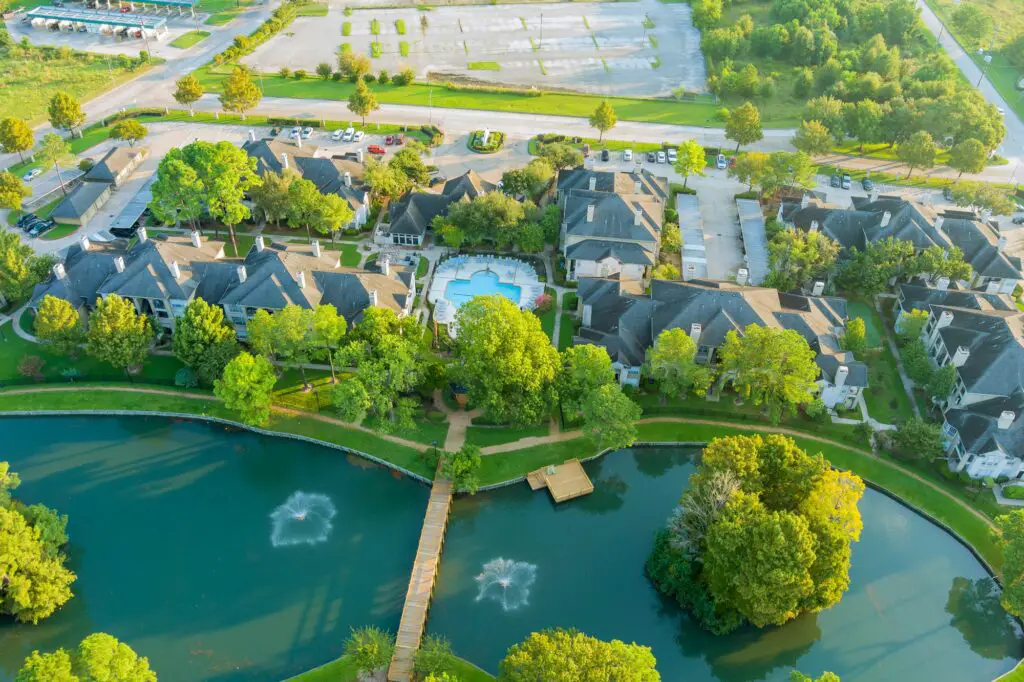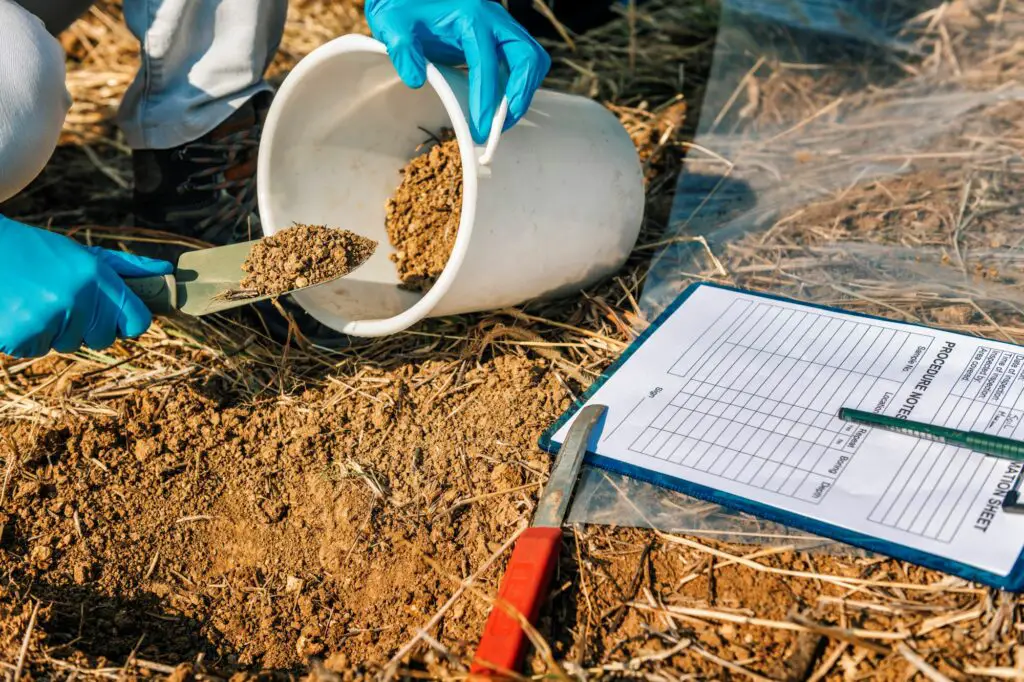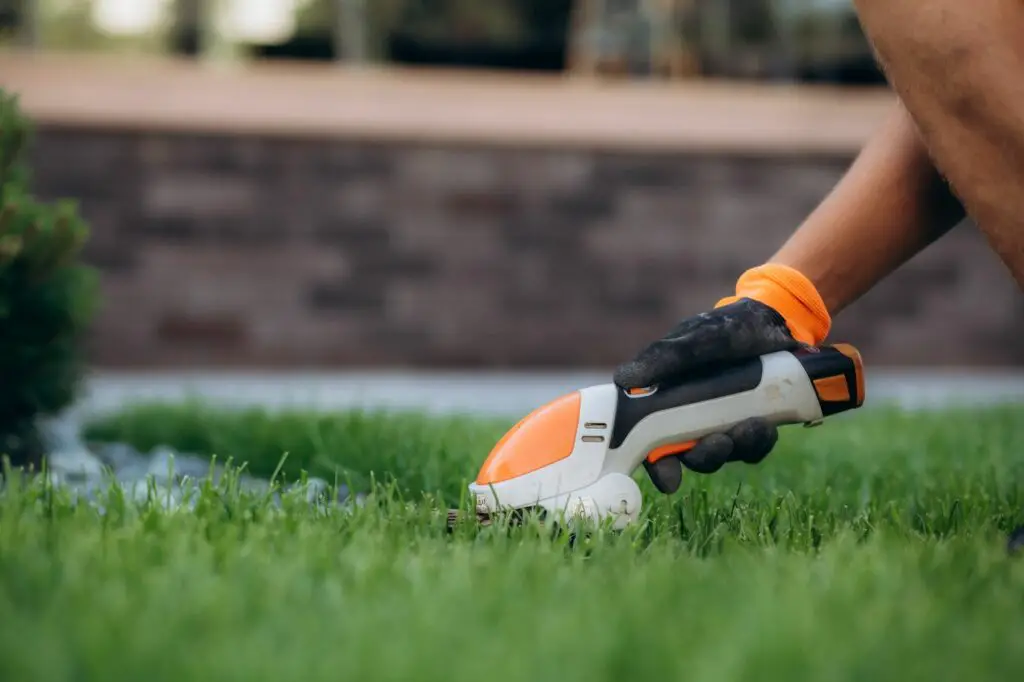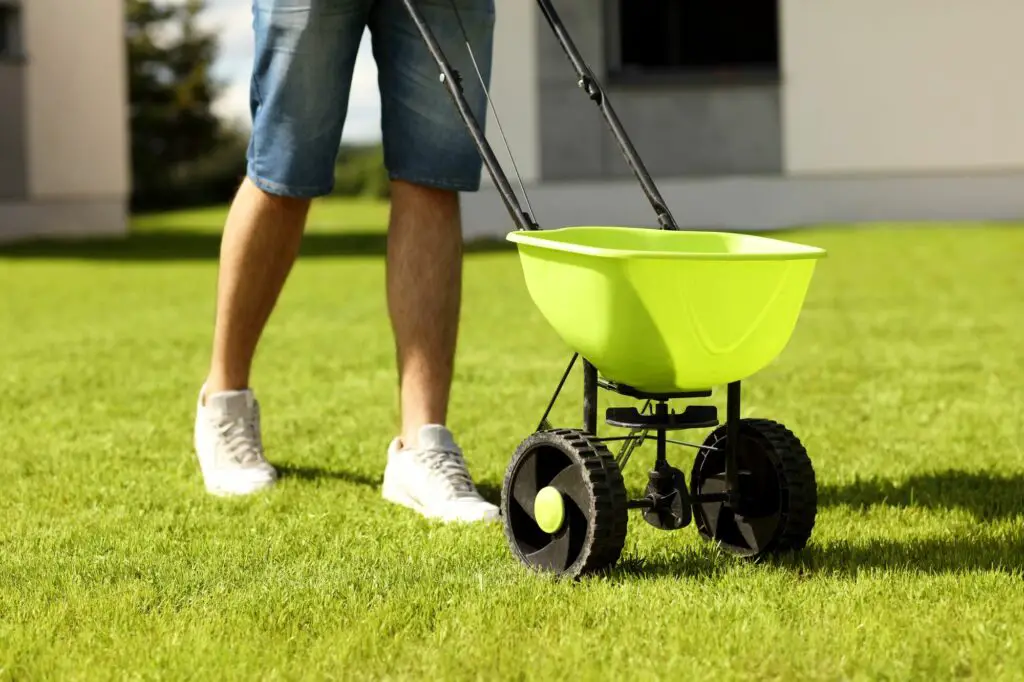When it comes to planting grass seed in Houston, timing is everything. Houston’s climate is characterized by hot summers and mild winters, making it a warm-season grass region.
This means that the best time to plant grass seed in Houston is during the warm season, which typically runs from late spring to early fall. However, there are several factors to consider when determining the ideal time to plant grass seed in Houston.
Understanding Houston’s climate is crucial when it comes to planting grass seed. Houston has a humid subtropical climate, which means that summers are hot and humid, while winters are mild and wet.
This climate is ideal for warm-season grasses, which thrive in warm temperatures and high humidity. Some of the most common warm-season grasses in Houston include Bermuda grass, St. Augustine grass, and Zoysia grass.
Each of these grasses has its own unique characteristics and requirements, which should be taken into account when deciding which grass seed to plant.
Key Takeaways
- Houston’s warm and humid climate is ideal for warm-season grasses, which thrive in high temperatures and humidity.
- The best time to plant grass seed in Houston is during the warm season, which typically runs from late spring to early fall.
- When planting grass seed in Houston, it’s important to choose the right type of grass, prepare the soil properly, and use the right sowing and watering techniques.
Learn more from related articles:
When to Plant Grass Seed in Idaho?
When to Plant Grass Seed in Maine?
When to Plant Grass Seed in Massachusetts?
When to Plant Grass Seed in Montana?

Understanding Houston’s Climate
Houston has a humid subtropical climate, which is characterized by hot and humid summers and mild winters. The city experiences an average annual temperature of around 70°F (21°C) and an average annual rainfall of about 48 inches (122 cm).
During the spring, Houston experiences warm and humid weather with temperatures ranging from the mid-60s to the mid-80s Fahrenheit. This is the perfect time to plant grass seed in Houston as the soil is warm enough to promote germination and growth.
Summer heat in Houston can be intense, with temperatures often exceeding 90°F (32°C) and high humidity levels. During this time, it is important to keep the soil moist to ensure the grass seed does not dry out and die.
Fall in Houston is characterized by milder temperatures and lower humidity levels, making it an ideal time to plant grass seed. The average temperature during fall ranges from the mid-50s to the mid-70s Fahrenheit.
Winter in Houston is relatively mild, with average temperatures ranging from the mid-40s to the mid-60s Fahrenheit. However, occasional cold snaps can occur, with temperatures dropping below freezing. It is important to choose a grass seed that can tolerate both the heat and occasional cold temperatures in Houston.
Types of Grass Suitable for Houston
When it comes to planting grass in Houston, there are a few types of grass that are well-suited for the climate and soil conditions. The most popular grass types for Houston include Bermuda grass, St. Augustine grass, Zoysia grass, and Centipede grass.
Bermuda grass is a warm-season grass that is drought-tolerant and can handle heavy traffic. It is a popular choice for sports fields and golf courses. St. Augustine grass is another warm-season grass that is best used as a decorative lawn and can tolerate a lot of shade. Zoysia grass is a warm-season perennial that can easily tolerate the extreme heat present in many parts of Texas, including Houston. Centipede grass is a low-maintenance, warm-season grass that can thrive in acidic soil conditions.
It’s important to note that warm-season grasses are best suited for Houston’s climate, as they can handle the hot and humid summers. Cool-season grasses, on the other hand, are better suited for cooler climates and may struggle to survive in Houston’s heat.
When selecting a type of grass for your lawn, it’s important to consider factors such as the amount of sunlight the area receives, the amount of foot traffic the lawn will see, and the soil conditions. Consulting with a lawn care professional can help you determine which type of grass is best suited for your specific needs.
Ideal Planting Time for Grass Seed in Houston
Planting grass seed in Houston requires careful timing to ensure optimal growth. The best time to plant grass seed in Houston is during the planting window, which falls between late fall and early spring. During this period, the soil temperature is ideal for seed germination and root development.
For spring planting, aim for March, April, or May. The last frost in Houston typically occurs in mid-March, so it’s important to wait until after that before planting. Spring planting allows for a longer growing season, which can result in a thicker, healthier lawn.
For fall planting, aim for late August, September, or early October. The first frost in Houston typically occurs in mid-November, so it’s important to plant before then. Fall planting allows the grass to establish roots before going dormant in the winter, resulting in a stronger, healthier lawn the following spring.
It’s important to note that the ideal planting time can vary depending on the type of grass seed being planted. Warm-season grasses, such as Bermuda and Zoysia, should be planted in late spring or early summer when soil temperatures are above 65°F. Cool-season grasses, such as fescue and ryegrass, should be planted in the fall when soil temperatures are between 50°F and 65°F.

Preparation of Soil for Sowing
Before sowing grass seed in Houston, it is important to prepare the soil properly. The soil should be loose and well-draining to allow the grass roots to grow deep. If the soil is too compact, the grass seed may not germinate properly, and the grass may not grow as well as it should.
One important step in preparing the soil is to remove any weeds or other vegetation that may be growing in the area. This can be done by hand or with a weed trimmer. Once the weeds have been removed, the soil should be loosened with a garden fork or tiller. This will help to break up any hard clumps of soil and allow the grass seed to penetrate the soil more easily.
Adding compost to the soil can also be beneficial. Compost is rich in nutrients and can help to improve the overall health of the soil. It can also help to retain moisture, which is important for the growth of the grass seed. Compost can be spread over the soil and then worked into the soil with a garden fork or tiller.
Aeration is another important step in preparing the soil for sowing. Aeration involves creating small holes in the soil to allow air, water, and nutrients to penetrate the soil more easily. This can be done with a manual aerator or with a machine that is specifically designed for this purpose.
Finally, chemical treatments can be used to help prepare the soil for sowing. These treatments can help to adjust the pH of the soil, add nutrients, and improve the overall health of the soil. It is important to follow the instructions carefully when using chemical treatments, as they can be harmful if not used properly.
Choosing the Right Grass Seed
When it comes to choosing the right grass seed for Houston, there are a few factors to consider. The first thing to consider is whether you want a warm-season or cool-season grass. Houston has a warm and humid climate, so warm-season grasses like Bermuda grass and St. Augustine grass are the most popular choices. These grasses thrive in hot and humid conditions and are drought-tolerant.
Bermuda grass is a popular choice for its durability and low-maintenance requirements. It can withstand heavy traffic and is resistant to drought and pests. St. Augustine grass, on the other hand, is a more luxurious option that is best used as a decorative lawn and tolerates a lot of shade.
When choosing a grass seed, it’s important to look for varieties that are specifically designed for the Houston climate. These seeds are often bred to be more heat and drought-resistant, making them more likely to thrive in the hot and humid Houston climate.
It’s also important to consider the maintenance requirements of the grass seed you choose. Some varieties require more frequent watering and fertilizing, while others are more low-maintenance. Choosing a grass seed that fits your lifestyle and maintenance needs can help ensure that your lawn stays healthy and green.

Sowing and Watering Techniques
Sowing grass seed is a crucial step in establishing a lush, green lawn in Houston. The best time to sow grass seed in Houston is during the optimal growth period, which is when daytime temperatures hit around 80 degrees for warm-season grasses. Cool-season grasses should be planted much earlier in the year before daytime temperatures pass around 70 degrees.
When sowing grass seed, it is important to prepare the soil properly. The soil should be loosened to a depth of at least six inches, and any debris, rocks, or weeds should be removed. After the soil is prepared, the grass seed can be sown by hand or with a spreader. The seed should be dispersed evenly over the soil to ensure uniform growth.
Watering is a critical aspect of the grass seed germination process. The soil should be kept moist but not waterlogged. Overwatering can lead to seed rot and fungal growth, while under-watering can cause the seeds to dry out and die. A good rule of thumb is to water lightly once or twice a day until the seeds sprout. Once the grass has sprouted, the watering schedule can be adjusted to every other day or as needed based on weather conditions.
It is important to note that the type of grass seed used will affect the sowing and watering techniques. Some grasses require more water than others, so it is essential to choose a grass seed that is well-suited to Houston’s climate and rainfall. Additionally, some grasses may require more frequent watering during the germination process than others.
Maintaining Your Houston Lawn
Once you have planted your grass seed, it is important to maintain your lawn to ensure it stays healthy and lush. Here are some tips for maintaining your Houston lawn:
Mowing
Regular mowing is essential for maintaining a healthy lawn. It is recommended to mow your lawn once a week during the growing season, and to never remove more than one-third of the grass blade. This will help promote healthy growth and prevent stress on the grass.
Fertilizing
Fertilizing your lawn is an important part of lawn maintenance. It is recommended to fertilize your lawn every 6-8 weeks during the growing season. Be sure to choose a fertilizer that is appropriate for your grass type and follow the instructions carefully.
Foot Traffic
Foot traffic can be damaging to your lawn, especially in areas with heavy foot traffic. To prevent damage, consider creating a path or walkway in high-traffic areas. You can also consider planting grass varieties that are more tolerant to foot traffic.
Sunlight
Grass needs sunlight to grow, so it is important to ensure that your lawn is getting enough sunlight. If your lawn is in a shady area, consider planting grass varieties that are more tolerant to shade.
Wind
Strong winds can be damaging to your lawn, especially in areas with loose soil. To prevent damage, consider planting wind-resistant grass varieties or using a windbreak.
Pests
Pests can be a problem for your lawn, especially in warm and humid climates like Houston. To prevent pest infestations, be sure to keep your lawn well-maintained and free of debris. You can also consider using natural pest control methods or consulting with a professional.
Dogs
Dogs can be damaging to your lawn, especially if they are allowed to run and play on it. To prevent damage, consider creating a designated area for your dog to play or training them to stay off the lawn. You can also consider planting grass varieties that are more tolerant to dog urine.

Additional Considerations
When planting grass seed in Houston, there are several additional considerations that need to be taken into account to ensure successful germination and growth of the grass.
Timing and Temperature
Timing and temperature are crucial factors that can affect the growth of grass seed in Houston. It is important to plant grass seed during the optimal growth period, which for warm season grasses, is when daytime temperatures hit around 80 degrees Fahrenheit.
Planting grass seed during the dormant season or when temperatures are too hot or too cold can result in poor germination and growth.
Weather Conditions
Weather conditions can also affect the growth of grass seed in Houston. Excessive rain or snow can block sunlight and prevent grass seed from germinating. On the other hand, drought conditions can cause the soil to become too dry, which can also hinder germination.
It is important to monitor weather conditions and adjust watering as necessary to ensure the best possible conditions for germination and growth.
Chemicals
Chemicals such as herbicides and pesticides can also affect the growth of grass seed in Houston. It is important to avoid using these chemicals in the area where grass seed has been planted, as they can block germination and growth. If it is necessary to use chemicals, it is recommended to wait until the grass has fully established before applying them.
Golf Courses
If planting grass seed on a golf course, there are additional considerations to take into account. Golf courses require a specific type of grass that is designed to withstand heavy foot traffic and frequent mowing. It is important to choose the right type of grass for the specific area and to follow proper maintenance procedures to ensure healthy growth.
Other Considerations
Other considerations when planting grass seed in Houston include soil preparation, choosing the right type of grass for the specific area, and proper watering and fertilization. It is important to research and follow best practices to ensure the best possible conditions for germination and growth.
Frequently Asked Questions
What is the best time to plant grass seed in Houston?
The best time to plant grass seed in Houston is during the fall season, which runs from mid-September through November. During this time, the soil is still warm from the summer, and there is usually enough rain to help the grass seed germinate and grow. It is important to avoid planting grass seed during the hot summer months, as the heat can damage the seedlings.
When should I plant grass seed in Texas?
In Texas, the best time to plant grass seed is during the fall season. This is because the soil is still warm from the summer, and there is usually enough rain to help the grass seed germinate and grow. It is important to avoid planting grass seed during the hot summer months, as the heat can damage the seedlings.
What is the best grass seed for Texas?
The best grass seed for Texas depends on the region and the specific needs of the lawn. Some popular grasses for Texas include Bermuda grass, St. Augustine grass, and zoysia grass. Bermuda grass is a warm-season grass that is drought-resistant and can handle heavy foot traffic. St. Augustine grass is a popular choice for its shade tolerance and attractive appearance. Zoysia grass is a low-maintenance grass that is also drought-resistant.
What is the best Bermuda grass seed for Texas?
The best Bermuda grass seed for Texas depends on the specific needs of the lawn. Some popular Bermuda grass varieties for Texas include Tifway 419, Celebration Bermuda, and Latitude 36 Bermuda. Tifway 419 is a popular choice for its durability and ability to handle heavy foot traffic. Celebration Bermuda is a newer variety that is known for its disease resistance and drought tolerance. Latitude 36 Bermuda is a cold-tolerant variety that is ideal for the northern regions of Texas.
When is the best time to plant St Augustine grass in Texas?
The best time to plant St. Augustine grass in Texas is during the spring or fall season. During these seasons, the soil is warm enough for the grass seed to germinate, but not too hot to damage the seedlings. It is important to avoid planting St. Augustine grass during the summer months, as the heat can damage the seedlings.
What grass seed should I use for winter in Houston?
In Houston, it is recommended to use a cool-season grass seed for the winter months. Some popular cool-season grasses for Houston include ryegrass, fescue, and bluegrass. Ryegrass is a popular choice for its fast germination and attractive appearance. Fescue is a low-maintenance grass that is also drought-resistant. Bluegrass is a cold-tolerant grass that is ideal for the northern regions of Houston.

Hey, I’m Lisa and I’ve been an avid gardener for over 30 years. I love writing, talking and living in the garden! Feel free to connect with me on my socials below

